Portugal wildfires see thousands of people evacuated amid 46C heatwave
British holidays still going ahead despite flames hitting beauty spots on tourist trail
Your support helps us to tell the story
From reproductive rights to climate change to Big Tech, The Independent is on the ground when the story is developing. Whether it's investigating the financials of Elon Musk's pro-Trump PAC or producing our latest documentary, 'The A Word', which shines a light on the American women fighting for reproductive rights, we know how important it is to parse out the facts from the messaging.
At such a critical moment in US history, we need reporters on the ground. Your donation allows us to keep sending journalists to speak to both sides of the story.
The Independent is trusted by Americans across the entire political spectrum. And unlike many other quality news outlets, we choose not to lock Americans out of our reporting and analysis with paywalls. We believe quality journalism should be available to everyone, paid for by those who can afford it.
Your support makes all the difference.Hundreds of firefighters are battling wildfires in Portugal where 1,400 people have been evacuated in a 46C heatwave.
The wildfire started on Saturday in the Odemira region on the west coast but it has since spread south towards the tourist hotspot of the Algarve.
Nine have reportedly been injured as a result of the fire.
High temperatures and strong winds have continued into Tuesday with two active fronts of the fire have now been confirmed – with one spreading towards the picturesque Monchique village.
Three districts, Braganca, Castelo Branco and Guarda, are currently on red alert for extreme heat. Authorities say that more than 120 Portuguese districts, including Lisbon, Alentejo and Algarve, are at maximum risk of wildfires.
Around 850 firefighters have been out battling the large blaze in the Alentejo region, with planes carrying water dousing the flames from above.
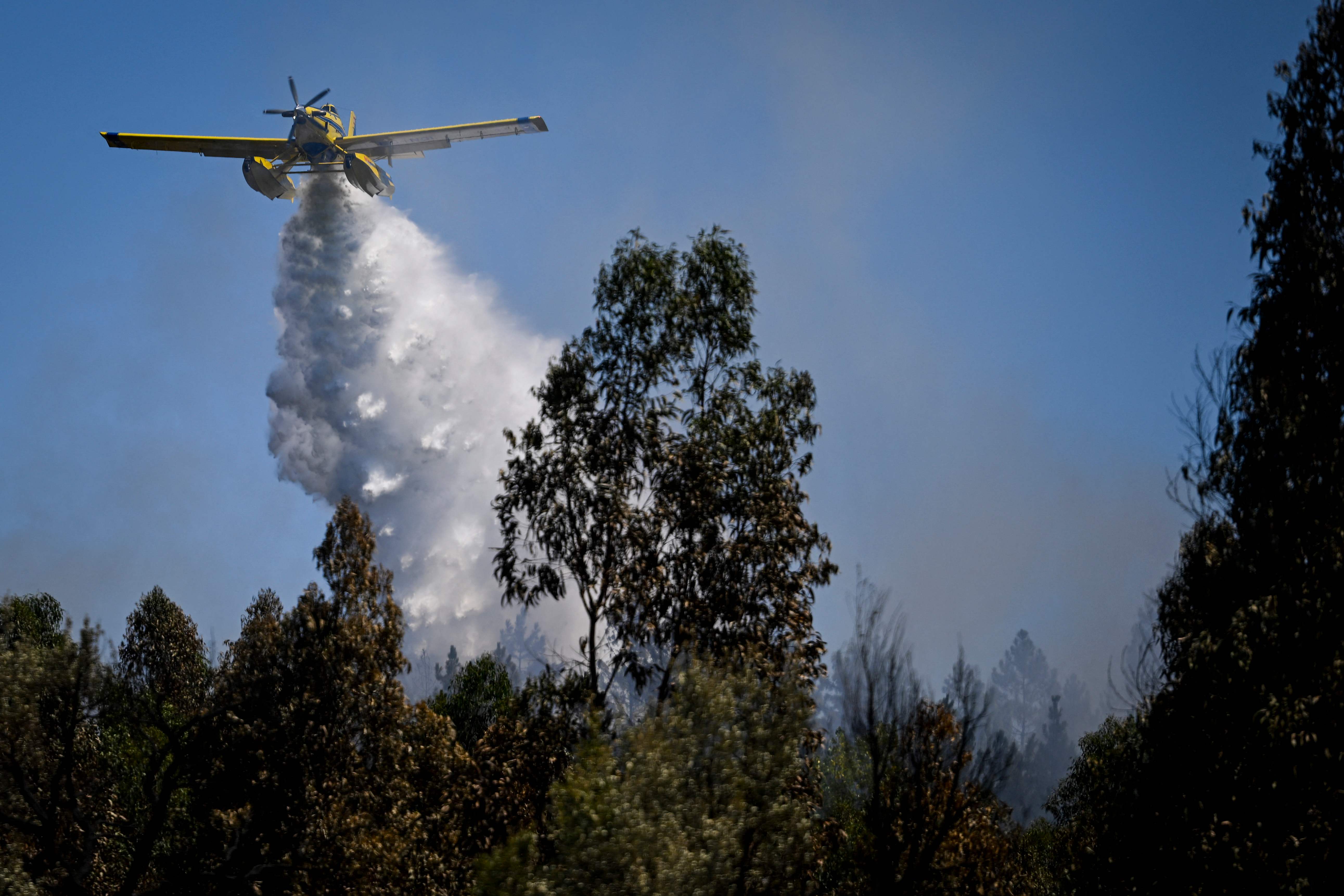
Odemira’s mayor, Helder Guerreiro, called the situation “critical, difficult and complex” while Civil Protection commander Jose Ribeiro said there was a “lot of work” ahead to bring the wildfire under control.
“The weather conditions we are going to experience in the coming days means any small occurrence (fire) could become a big one,” Civil Protection secretary of state Patricia Gaspar told a news conference.
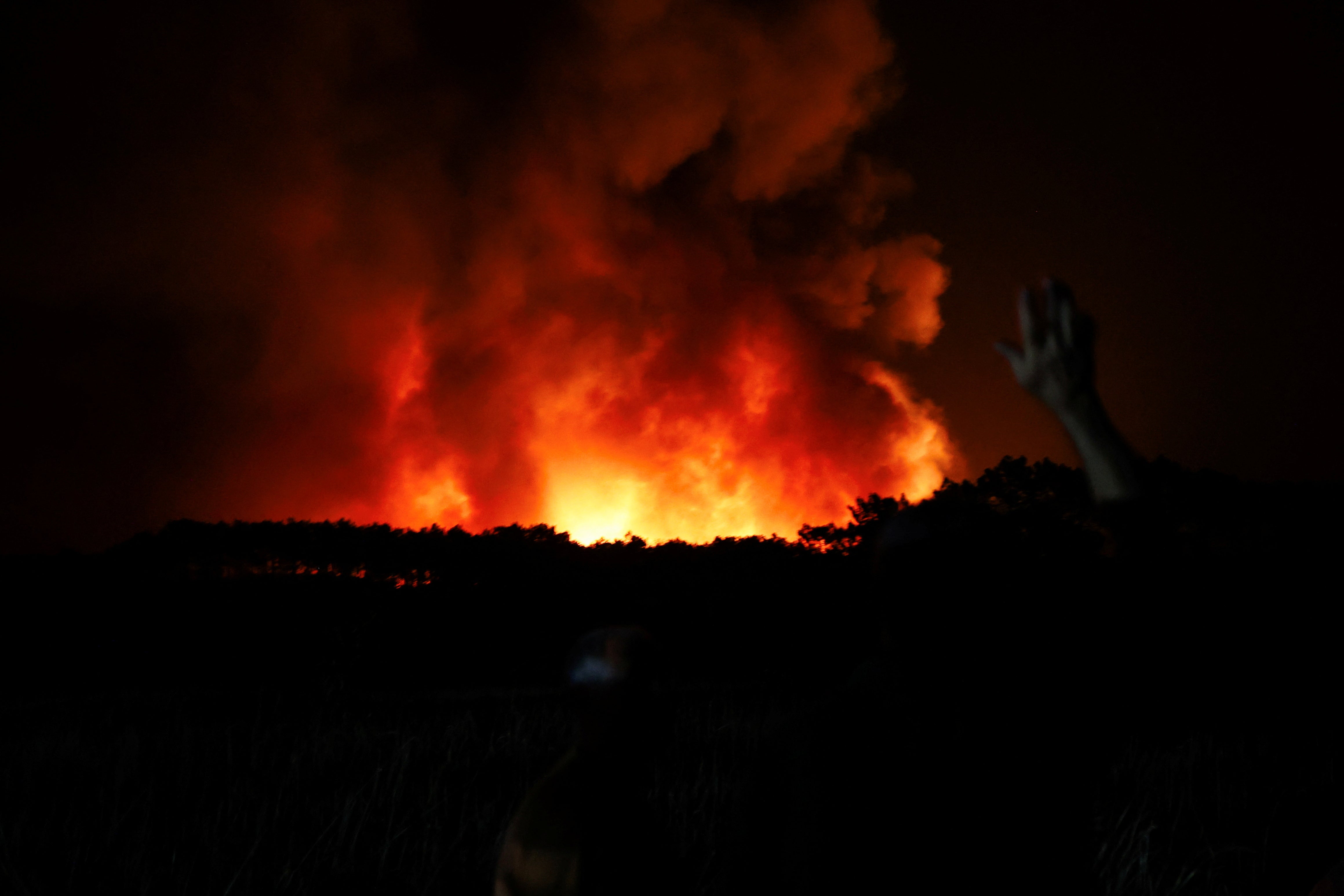
Advice for tourists
The primary wildfire area is the municipality of Odemira, in the Alentejo region, although there could soon be a major spread into the holiday destination of the Algarve.
Some roads in the Alentejo region have been blocked off, while 19 villages, four tourist accommodations and a campsite have been evacuated.
The UK’s Met Office has also issued a weather warning for Spain, Portugal and Africa as wildfires rage across some of Portugal’s most popular tourist hotspots.
“Temperatures have increased across Spain, Portugal and North Africa in recent days, widely into the mid-30sC, if not into the low- to mid-40sC”, the Met Office’s statement, released via Twitter, read.
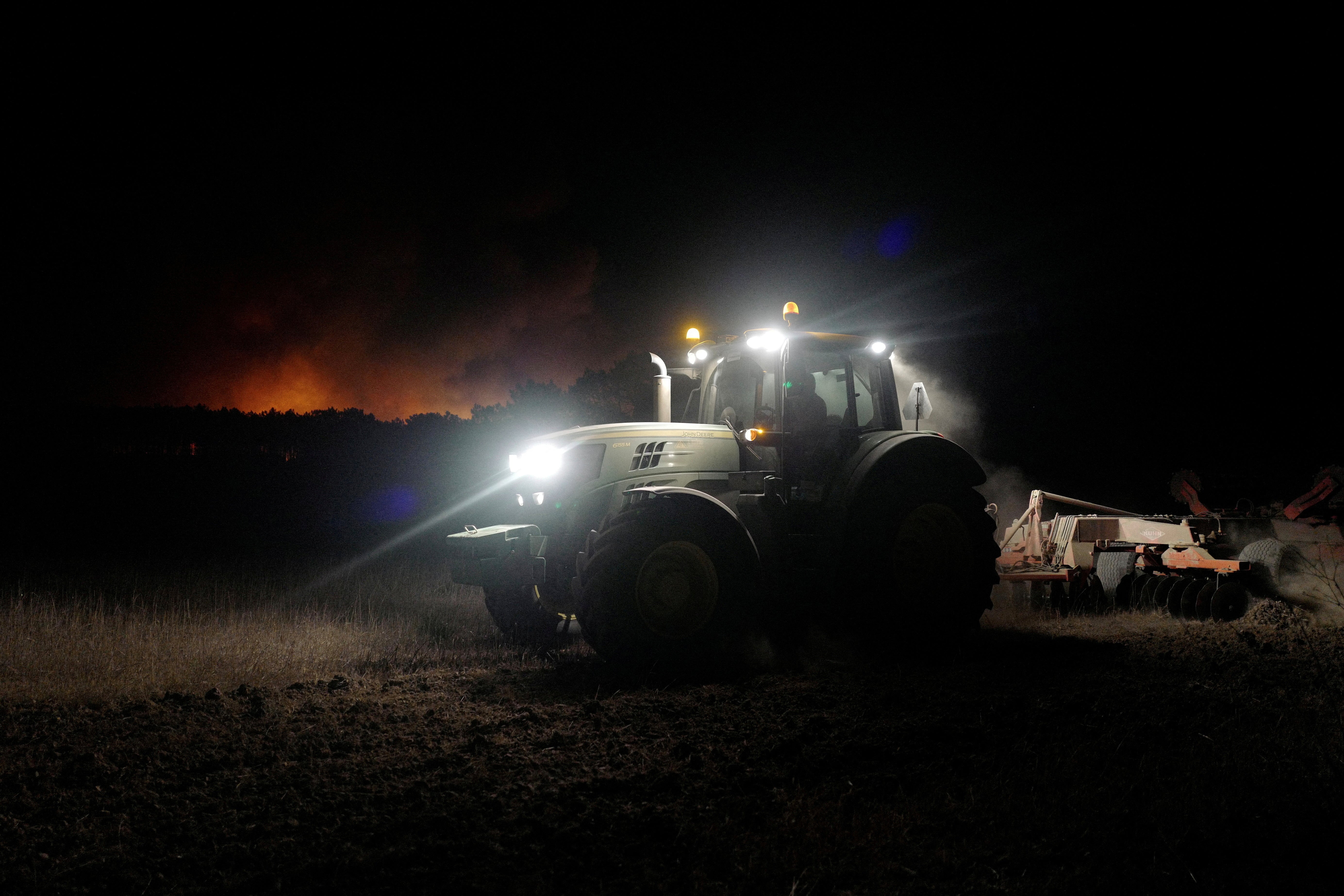
“The heat is expected to extend further north and east by midweek, before temperatures return closer to average by the weekend.”
As of Monday, Portugal’s minister of internal administration confirmed that “for now” the government will not declare an alert.
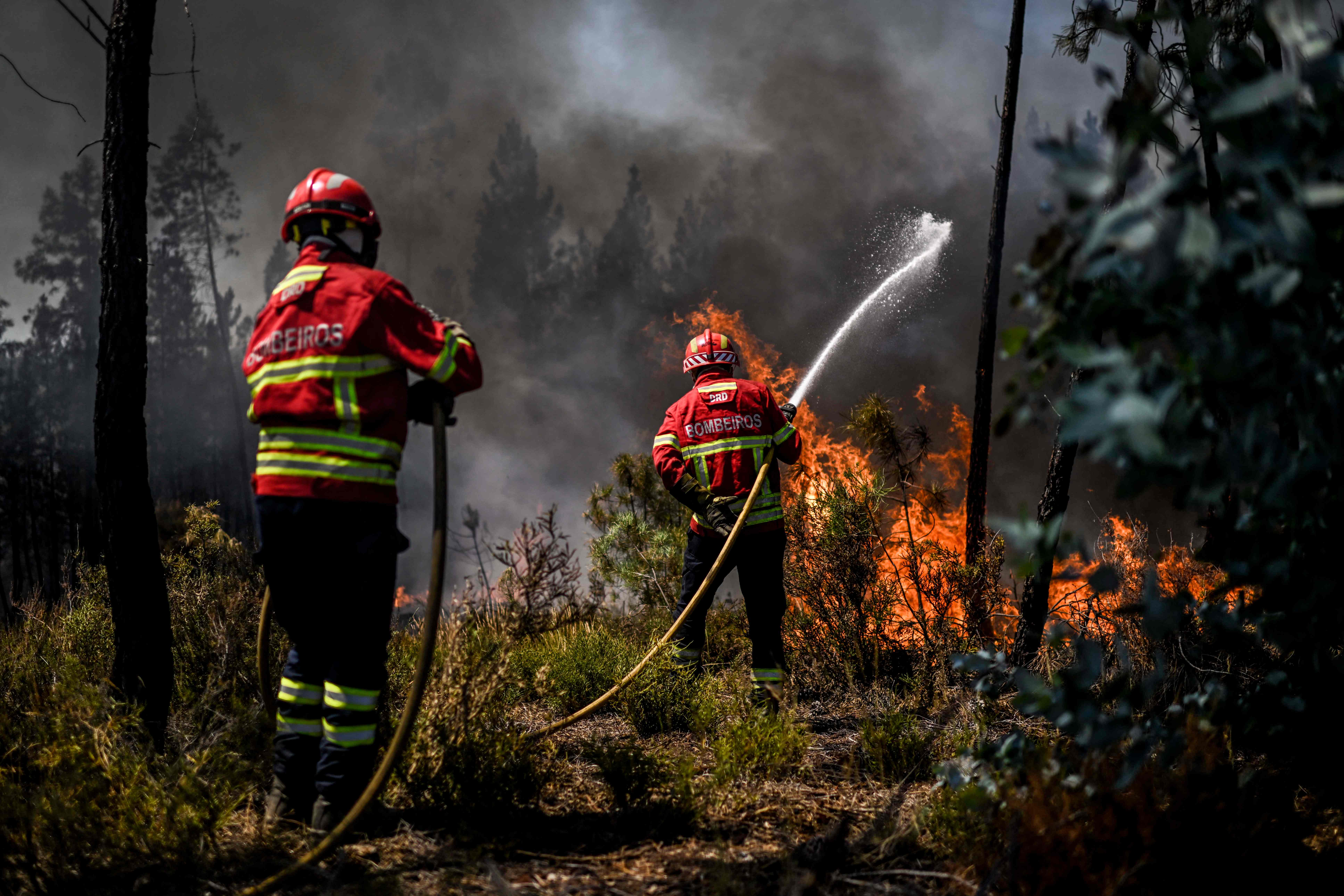
The UK Foreign Office has said: “Forest fires can occur anywhere in Portugal. Risk of fires is higher when the weather is hot and dry. Fires have become more common due to drought and high temperatures.
“Forest fires are highly dangerous and unpredictable.”
No holidays to Portugal appear to have been cancelled by travel companies at this time.
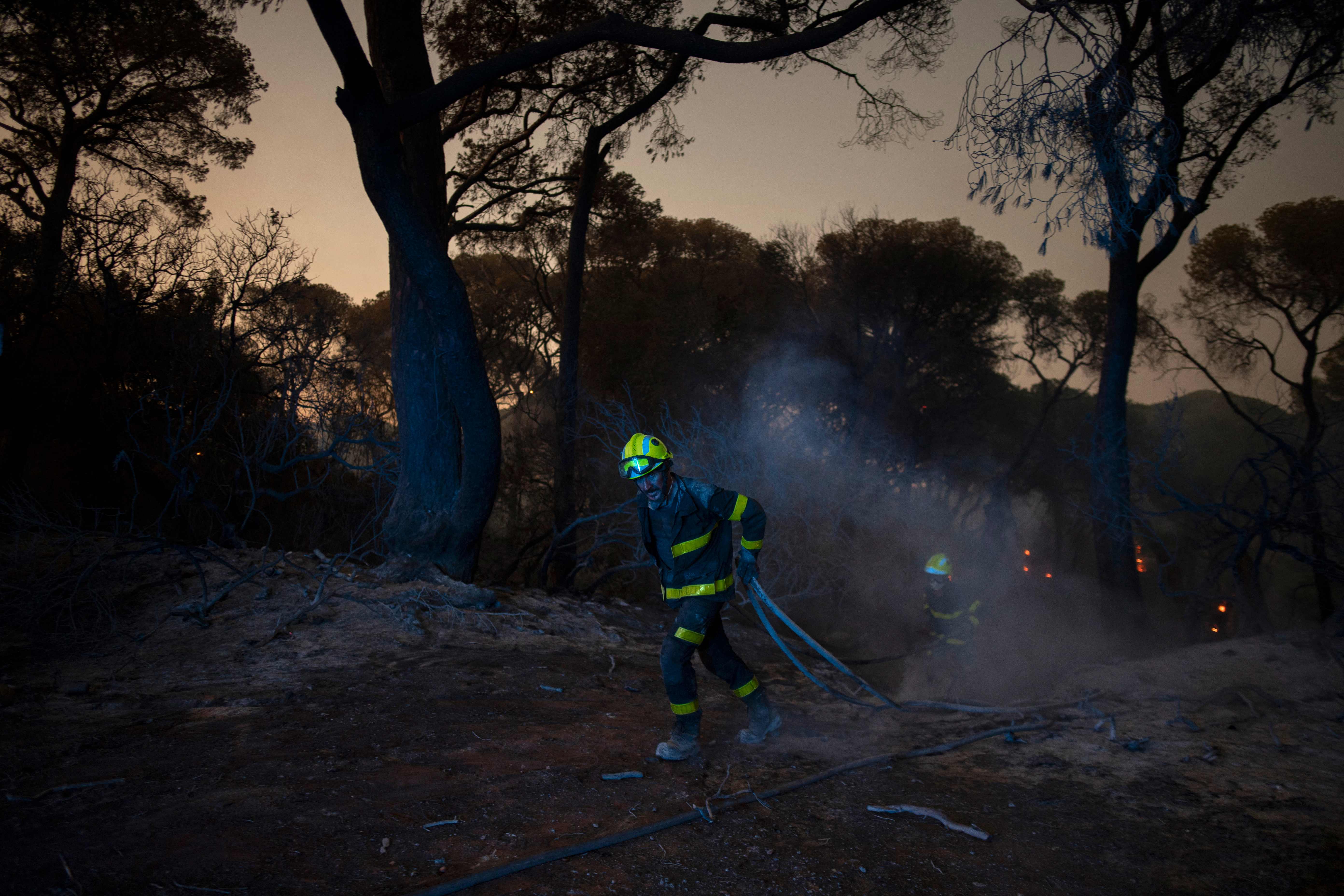
Fires continue to burn elsewhere
There have also been wildfires in Sardinia, while in Greece, the island of Rhodes is recovering from 10 straight days of fires and the community is hoping for a return of tourists to bolster its local economy after thousands of tourists were evacuated due to the blazes last month.
In Algeria, approximately 35 wildfires have been spreading across more than 11 regions in the northeast since 24 July. The Algerian Government has reported 34 deaths, with temperatures exceeding 45C and high wind speeds reaching over 50kmph by the Tunisian border worsening the situation.




Join our commenting forum
Join thought-provoking conversations, follow other Independent readers and see their replies
Comments